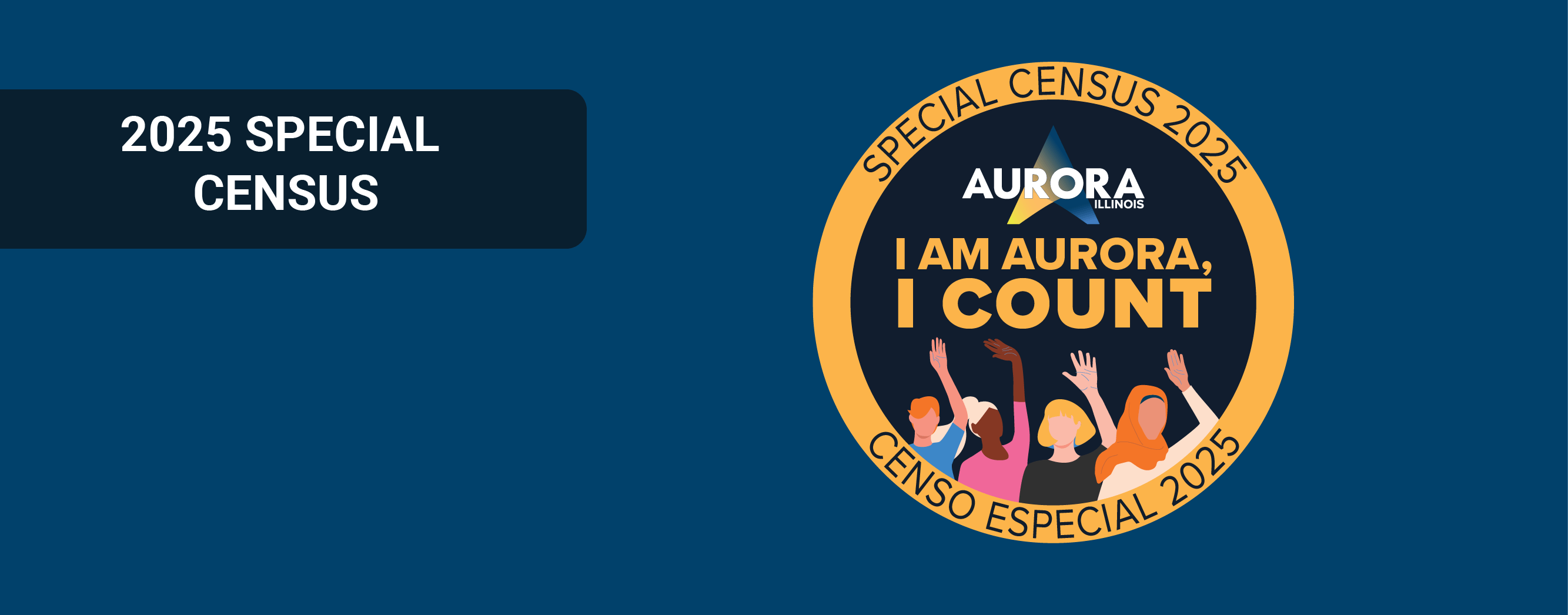FAQs
Why is the City completing the Special Census?
The 2020 U.S. Census showed that Aurora lost over 17,000 people. This reported loss in population has led to the City losing over $4.3 million per year in revenue, greatly affecting day-to-day operations and services provided. Key services including road maintenance, transportation projects, purchases of street salt, public safety, public works, community services, and special events have been affected by this loss in revenue.
If the City chose to wait until the 2030 Census to recount the population, the loss of revenue would total $43 million. To date, the City has already sustained a loss of $11 million in revenue. To end this loss, Aurora will pursue completing a Special Census, leading to a more accurate population count, restoration of key funding, and expansion of services to the City’s growing community.
Why was the City undercounted in 2020?
In 2020, a perfect storm of undercounting errors was created by the COVID-19 Pandemic, the 2020 Presidential Election, and new, untested technology designed to count the population.
The Census Bureau's 2020 "Post Enumeration Survey" (PES) identified that the State of Illinois was undercounted by 1.97%, the African American population was undercounted by 3.30% nationwide, the Latino population was undercounted by 4.99% nationwide, and renters were undercounted by 1.48% nationwide.
The Census Bureau also instituted a new technique in 2020 called "Differential Privacy," making it impossible for cities to check the Bureau's work or to challenge its results.
All of these factors contributed to Aurora's undercount, which is why the Special Census is necessary to correct the City's population count.
What areas of the City were undercounted in 2020?
In 2020, eight of Aurora's 10 Wards were undercounted. The 2025 Special Census will focus on those wards, with specific attention to the City's East Side, where the Census Bureau missed people and missed new construction.
Why should I respond to the Special Census?
By responding to the Special Census, you will help Aurora establish an accurate population count. This will provide the City with opportunities to earn additional funding to serve the community.
You will also help to end the City's current loss of revenue, restoring funding for critical services, such as public safety, public works, road repairs, and special events.
Aurora's six school districts, two hospitals, and park districts will also be able to access more funding, expanding services to the City's growing population.
I am not an American citizen. Should I complete the Special Census?
Yes. No questions regarding your citizenship status will be asked. You will count!
I am concerned about privacy. Will my response be used against me?
All responses to the Special Census are anonymous, private, and protected by law. Citizens’ responses cannot be used against them in any way. No individual or entity, including the Census Bureau, can track down your response.
Will I be asked about my citizenship status?
No questions regarding citizenship status are included in the 2025 Special Census.
What is a Census Tract?
A relatively permanent statistical subdivision of a county, generally having a population size between 1,200 and 8,000 people, with an optimum size of 4,000 people.
What is a Census Block?
Statistical areas bounded by visible features, such as streets, roads, streams, and railroad tracks, and by nonvisible boundaries. Generally, blocks are small in area; for example, a city block bounded on all sides by streets. Blocks nest within all other tabulated census geographic entities at the time of the decennial census and are the basis for all tabulated data from that census.
